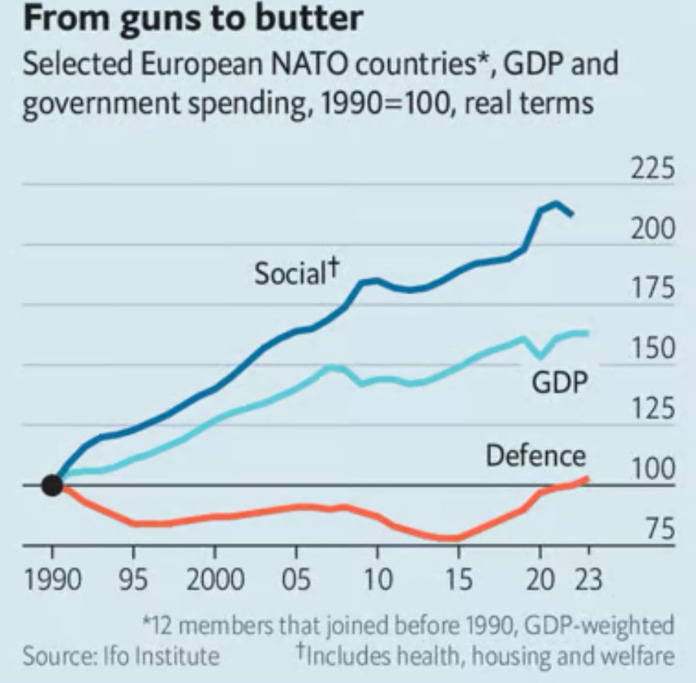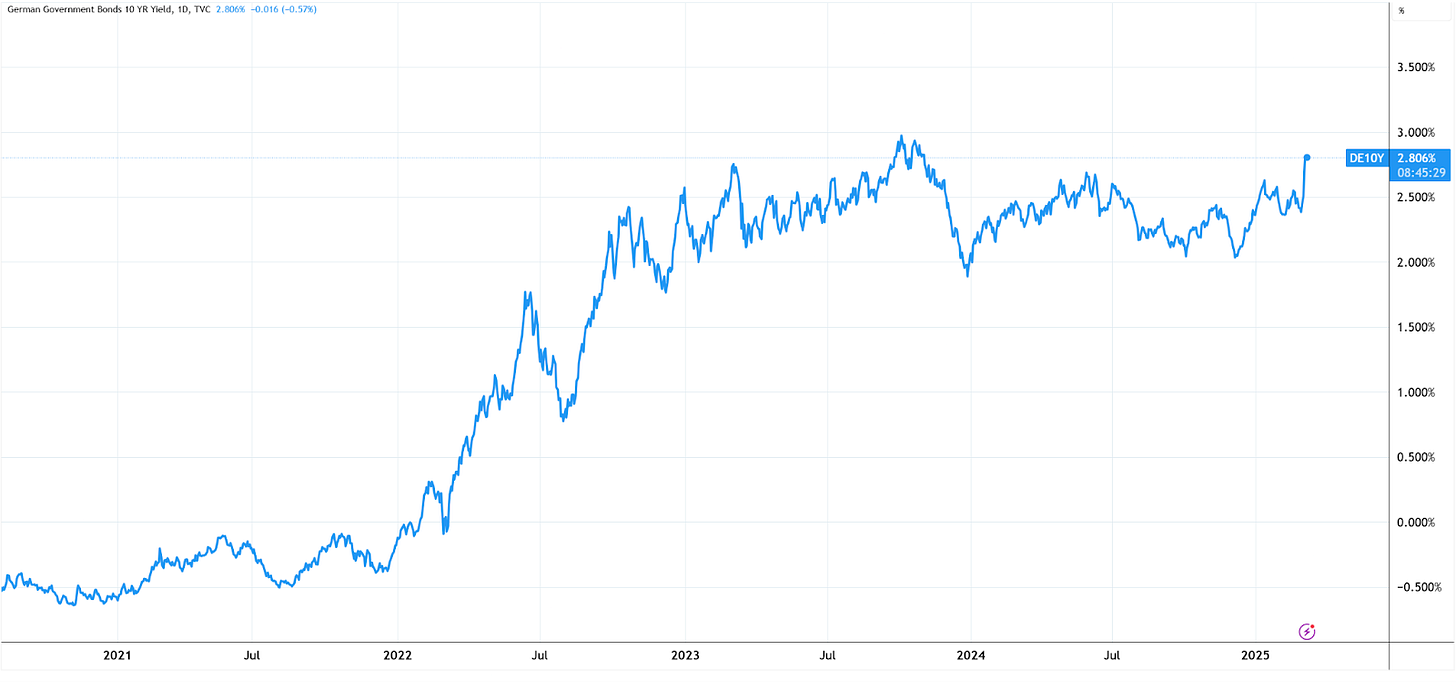Europe's Ambitious Defense Plans Face Harsh Fiscal Reality Check
EU outlines defense priorities as it grapples with a shift in the global order under Trump

European leaders have ambitious plans to increase defense capacity as US President Donald Trump pushes them to take greater responsibility for regional security. But, fiscal realities in the European Union (EU) may curtail European defense spending ambitions.
Germany’s likely incoming Chancellor Friedrich Merz said on Tuesday that increasing European defense capabilities will be his “absolute priority” following his party’s February 23 election victory. He has urged an amendment to the constitution to exempt defense spending beyond 1% of GDP.
President of the European Commission (EC) Ursula von der Leyen has proposed an up to €800 billion plan to finance further investment in the European Union’s (EU) defense. Von der Leyen described the current moment as “an era of rearmament,” saying that “Europe is ready to massively boost its defense spending.”
EU nations have outlined defense priorities as they grapple with a perceived shift in the global order under the Trump Administration. For now, Washington has paused all aid to Ukraine, leaving the EU as its primary supplier, as part of Trump’s new approach to geopolitical imperatives.
“The Trump administration’s demand that its European allies take charge of regional security has triggered a crisis in Europe,” said Kamran Bokhari, Senior Director at New Lines Institute, writing in Geopolitical Futures.
“Building a new European security architecture could take years – assuming European countries can even reach a consensus and commit the necessary financial resources.”
European Defense Spending Faces Fiscal Realities
European efforts to increase defense spending face an uncomfortable reality – existing fiscal budget constraints. For decades, European members of the North Atlantic Treaty Organization (NATO) have spent more on social welfare, housing, immigration, and healthcare as a percentage of GDP than defense.
Fitch Ratings warned on February 25 that “Increased defence spending will add to the challenges of rebuilding fiscal buffers.” This “will likely lead to higher fiscal deficits and financing needs given the difficulty in making equivalent expenditure cuts.” Fitch said.
It pointed to Europe’s aging population, “higher debt-servicing costs, social spending demands, and political challenges in raising taxes.” Veronika Grimm, an economist at the University of Technology in Nuremberg, has a similar message.
“In Germany, we have been living beyond our means for decades,” she wrote on X on Wednesday. “Social spending continues to rise sharply and will be difficult to curb due to demographic trends. ”

French, Italian Debt May Curtail European Defense Spending
France, one of the continent’s top military powers and the EU’s second-largest economy, is grappling with a budget deficit of around 6.1% of its total GDP. Its national debt is expected to reach 115% this year.
These figures are double or nearly double the acceptable EC limits of 3% and 60%, respectively, causing Brussels to initiate corrective measures.
Italy’s debt-to-GDP ratio is expected to spike to around 138% in 2026. It is among the few EU nations yet to meet NATO’s 2% investment goal. Rome's national defense budget will not reach 1.6% of GDP until 2027.
“The fiscal train wreck that is Italy is running at full speed,” Robin Brooks, a Senior Fellow at the Brookings Institute, wrote on X. Italy racks up debt in bad times like COVID. Then it also racks up tons of debt in good times like now. Germany's fiscal expansion will only make this worse…”
Germany’s Debt Brake Limits European Defense Spending
Germany, the EU’s largest economy, does not currently have the same debt levels as other European countries. However, Berlin has historically been constrained by its “debt brake,” which limits any new annual borrowing to 0.35% of total GDP.
If Germany does amend its constitution, it would allow the government to borrow over €1 trillion over the next decade. As Holger Zschäpitz, Senior Editor for economics and finance at Germany’s daily Die Welt, notes, this would be a significant increase on the €50 billion in annual borrowing allowed under the existing laws.
Debt markets, however, have voiced their concerns about Germany’s spending plans. The country's bond yield spiked after Merz announced his plans to amend the constitution to increase defense spending by €500 billion.
German borrowing costs - as measured by the yields on the country's bonds - have continued to rise. At one point, yields hit 2.929% - the highest since October 2023. Yields in Europe’s three other biggest economies followed.
“And since the German bond yield is the benchmark against which all other Eurozone countries are rated, yields in France and Italy are also spiking,” Jeroen Blokland, founder of the Netherlands-based Blokland Smart Multi-Asset Fund, wrote on X. “The last thing European ‘leaders’ can use is debt sustainability anxiety.”
ECB Cuts Rates Ahead of Increase in European Defense Spending
In response, in part, to increased concerns about borrowing costs, the European Central Bank (ECB) lowered its key interest rate by 25 basis points on Thursday. The rates on the deposit facility, the main refinancing operations, and the marginal lending facility will decrease to 2.50%.
To allow for more defense spending, Von der Leyen has proposed enacting the escape clause of the EC’s Stability and Growth Pact. This would allow nations to borrow for national defense without facing repercussions should they exceed the 3% cap.
Italy’s Prime Minister Giorgia Meloni, supported this approach, calling it a “first step that should be followed by other solutions.”
French President Emmanuel Macron has previously suggested that EU nations borrow collectively to fund a joint defense investment. However, Austria, Hungary, Ireland, Cyprus, and Malta would likely oppose such a move.
“Europe outsourced its defense to the US taxpayers for decades and blew up its welfare systems instead,” Michael A. Aroue, a European economy and politics analyst, wrote on X. “Folks, don’t blame Trump and JD Vance for your own mistakes. Get your act together and finally start properly investing in your own defense. You need it more than the US now.”






